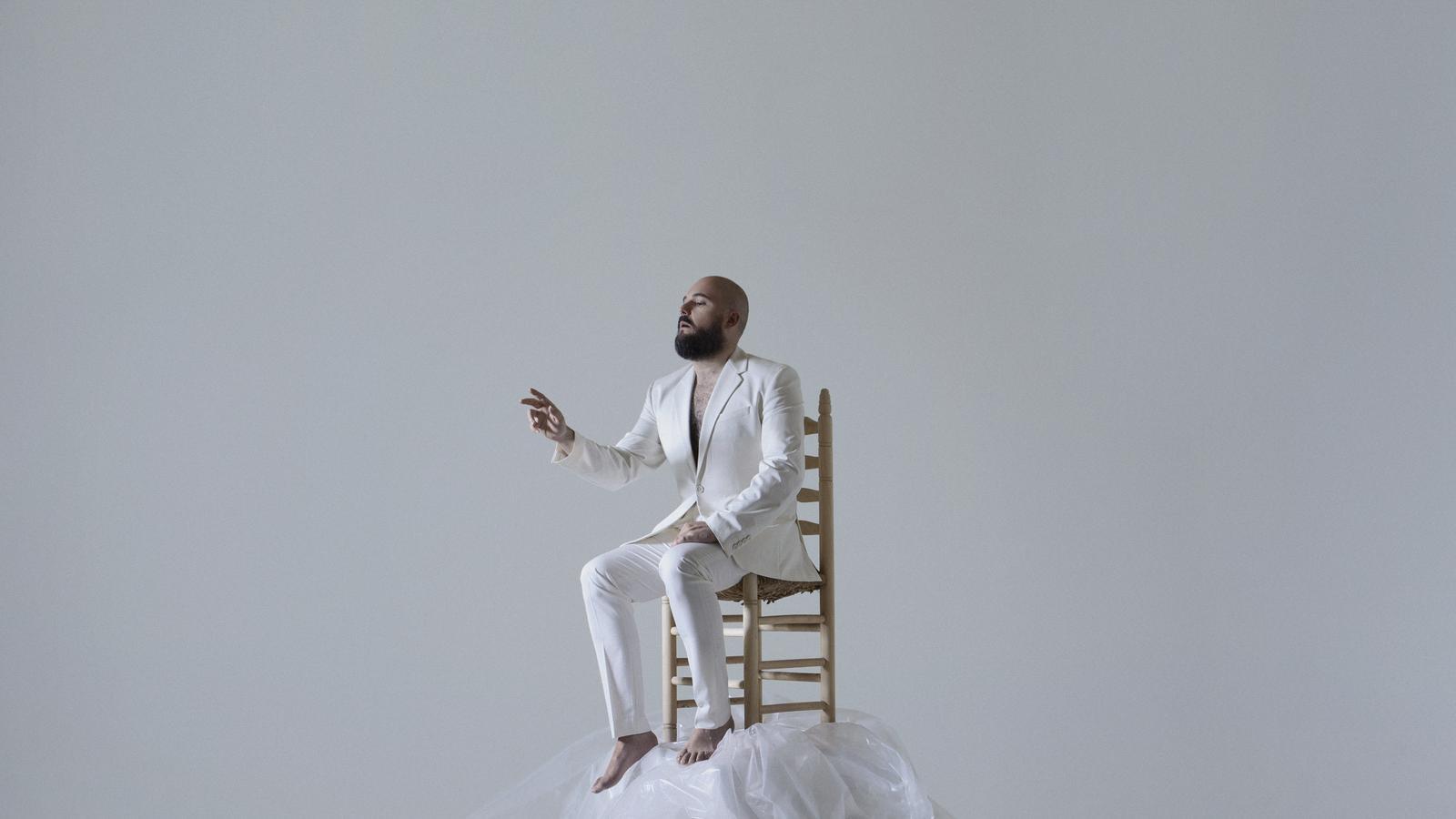Niño de Elche: "We live in a more judgmental than critical environment."
Singer


PalmIf he doesn't write, he sings; if he doesn't sing, he composes; if he doesn't compose, he reads or prepares some kind of performance, who knows in what format. Paco Contreras, known artistically as Niño de Elche, is an artist who works in different fields because he doesn't know how to do it any other way: he likes experimentation, contradiction, and, above all, knowing what he wants to say: "The format comes later, but it's important to know the message." On Saturday, August 9, he will be at the Santuario de Consolación de San Juan, along with Soleá Morente, during the great flamenco night of the Fundación Mallorca Literaria's La Luna en Verso festival. He's not presenting any album: he'll give a concert that will have two parts. "The first will be more focused on guitars, with a sound close to flamenco rock and progressive rock. The second part will be a session based on all the music I've developed from radishes, industrial music, and machine music."
Music, poetry, performance art… You're a total mess. What are you working on right now?
— I'm preparing a project for the fall, for the Lisbon Art Biennial. We're working with musicians, anthropologists... The project combines music and performance.
What do you get from working with different formats?
— I've been working in different fields and formats for a long time. If I had only dedicated myself to singing, I would have quit. What interests me is experimenting with my voice and seeing what I can express with it. Over time, I imagine I'll sing less and dedicate myself more to other creative activities that I haven't prioritized until now. For many years, I've been interested in fields like politics, poetry, philosophy, and the visual arts, where there's always a critical and self-critical spirit. I think we live in a more "critical" environment than a truly critical one, and social media is largely to blame. On the other hand, I'm drawn to contradiction: it's realistic, poetic, and allows us to transform ourselves, understand our inconsistencies, and evolve.
Experimentation is one of the things that characterizes him as an artist, also in music.
— For me, experimental music isn't an aesthetic, but rather a way of making music, a methodology for listening, rethinking, and testing ideas and concepts. The important thing is knowing what you want to say. The format comes later. I work through various formats: writing, exhibitions, radio, contemporary dance... but what matters is the aesthetic and conceptual discourse.
What will the Sant Joan concert be like? Songs from your albums will be heard, such as your latest release. Gypsy style singing?
— It's a repertoire concert, featuring songs from recent albums, but also includes pieces that haven't been recorded, and a lot of live electronic music. This vocal form permeates all of my work, sometimes more explicit, other times more subtle.
In Gypsy style singing There are collaborations such as Andrés Rodrigues, who plays the bagpipes, the Valencian producer and DJ Ylia, and the percussionist Eric Jiménez.
— For me, inviting someone to a project must have a reason. I'm not driven by the goal of having high-profile names if they don't clearly reflect the concept and development of the work. I've been very critical of the tendency to invite people simply to fill the gaps or show off. I've always been interested in the essence of songs and understanding what each person can contribute, from a deep and conceptual perspective. That's why collaborators are who they are.
The album is a new look at the repertoire of the legendary Manuel Torre (1880-1933) as a young Niño de Jerez. Is it also a tribute?
— This project is a recognition of his figure through his repertoire, but not an exercise in homage. I'm always critical of the people I work with; I'm not interested in fanaticism. Even with those who are no longer with us, I don't seek to evangelize anything. Manuel Torre embodies many myths: anarchist singer, a Jerez singer... and I was very interested in the idea of demythologizing and remythologizing these references.
You've called yourself an ex-flamenco. Why?
— The prefix 'ex' helps me explain that I separated myself from flamenco not as music, but as a standard structure and context. anti-flamenco and I wanted to propose a critical and constructive alternative.
